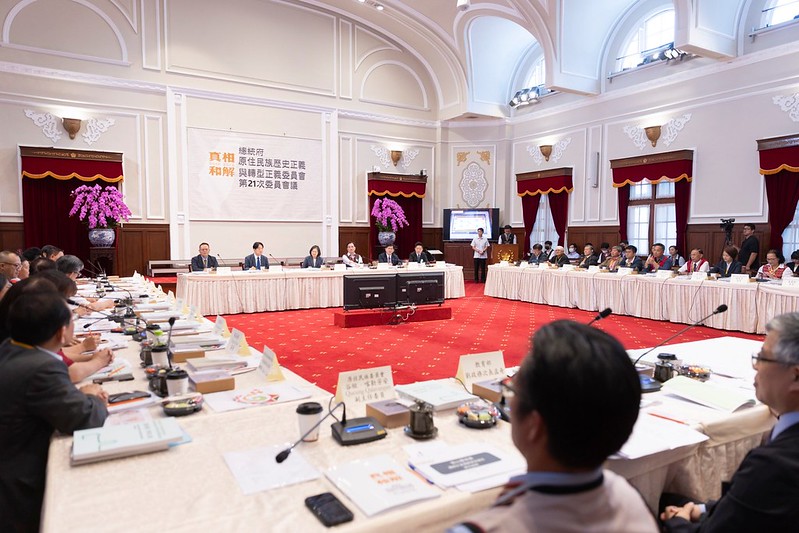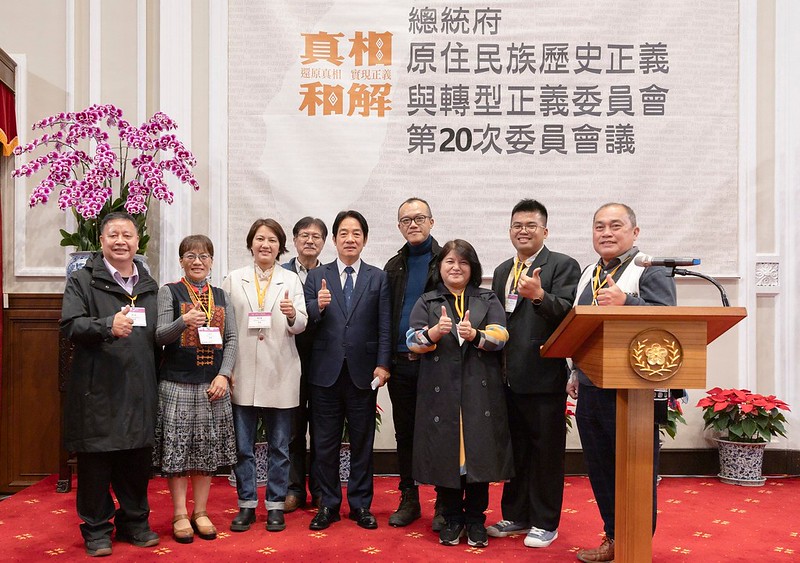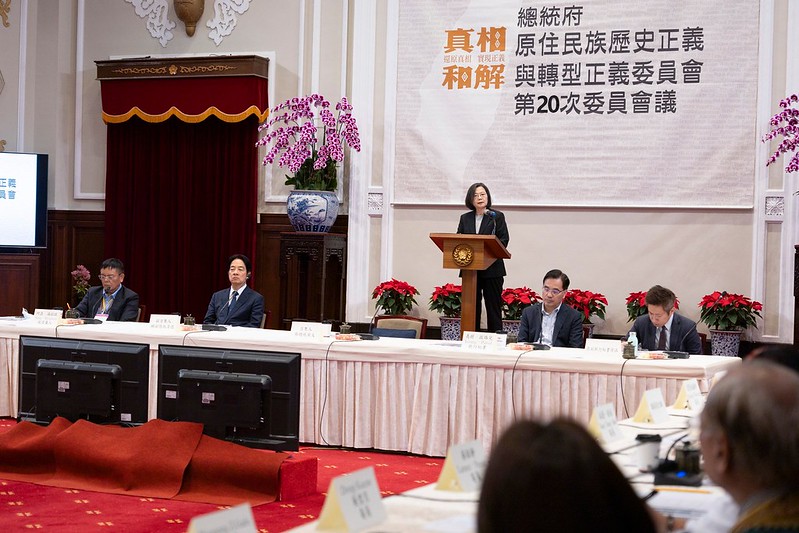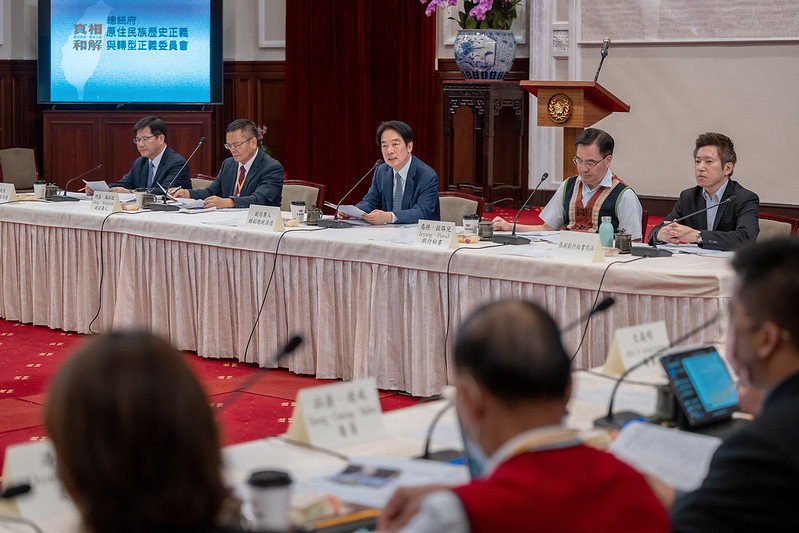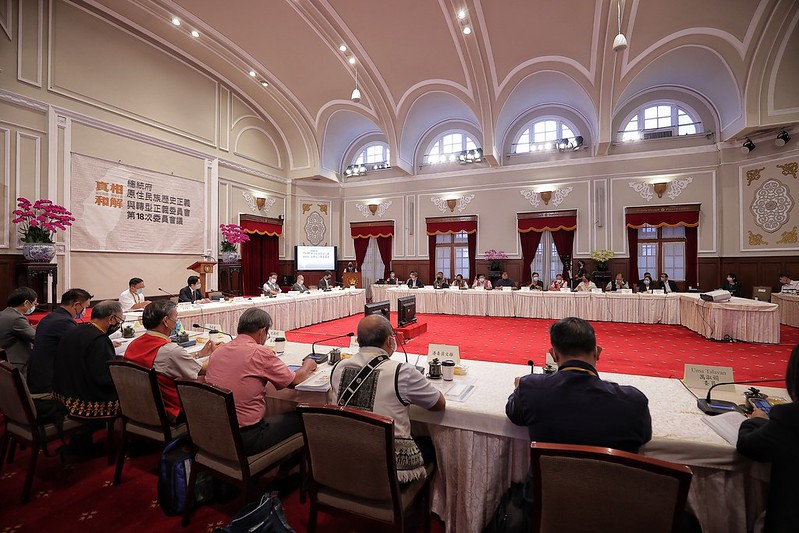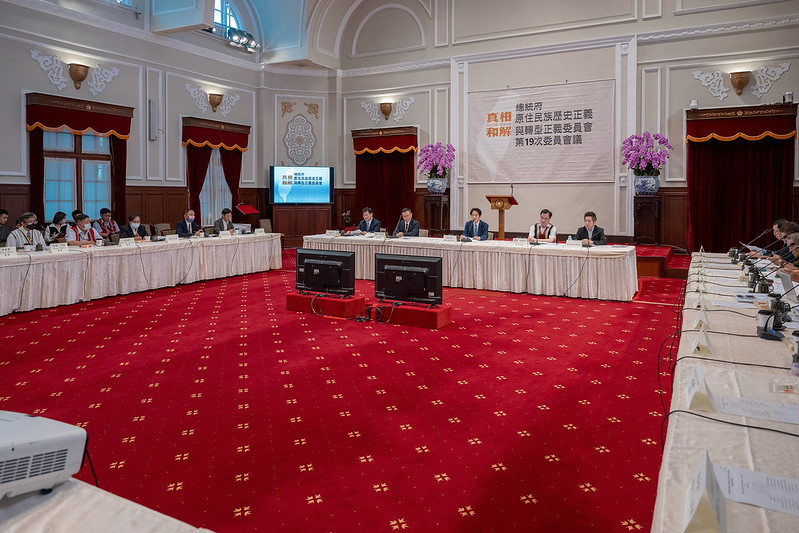News & activities
 News releases
News releases
The 19th meeting of the Presidential Office Indigenous Historical Justice and Transitional Justice Committee was convened on July 28 in a two-hour session that was presided over by the committee's deputy convener, Vice President Lai Ching-te.
The meeting began with progress reports from the Subcommittee on Land Matters and the Subcommittee on History, and a report on Taiwan Constitutional Court (TCC) judgment No. 17 (111-Hsien-Pan-17 (2022) – the case on the indigenous peoples status for the Siraya people – and its subsequent handling. These reports were delivered respectively by Minister of the Council of Indigenous Peoples (CIP) Icyang Parod, Subcommittee on History Chair and Deputy Minister of Education Lio Mon-Chi (劉孟奇), and CIP Deputy Minister Calivat.Gadu (鍾興華).
Vice President Lai issued several directives on behalf of President Tsai Ing-wen. First, he thanked the Subcommittee on Land Matters for their many years of hard work conducting research through a variety of approaches – including interviews, on-site investigations, and archival research – in order to gain a clearer historical understanding of how indigenous peoples' lands were lost. The vice president said the research results will be published late this year, and expressed confidence that beyond making up for past wrongs, this work will provide a foundation for consultations and reconciliation between the government and indigenous peoples. He added that the publication of these reports can help the public better understand the issue of land disputes by viewing it through the lens of transitional justice.
The vice president also thanked the Subcommittee on History for its many years of public educational engagement. Through inter-agency cooperation, he said, the Ministry of Education has amended the Education Act for Indigenous Peoples and begun pursuing efforts to enhance awareness of and respect for indigenous peoples. He also noted that a CIP book on major incidents in the history of indigenous peoples has been incorporated into the 12-year school curriculum to enrich historical perspectives on indigenous peoples.
The vice president mentioned that the Ministry of Culture is also actively promoting establishment of memorial spaces and maintenance of cultural assets to help indigenous peoples and local governments make the connections between collective memories and indigenous groups of different locations, thus bringing about greater understanding of and reflection on the past.
The vice president said he hopes the Subcommittee on History will uphold its efforts to ensure that the spirit of indigenous historical justice and transitional justice continues to be instilled in both school and social education, so that people from all walks of life can together develop a deeper understanding of historical facts and learn from history.
Regarding the report on TCC judgment No. 17 and its subsequent handling, the vice president stated that the Pingpu peoples have fought years for the rectification of their name and that this TCC judgment has cleared a pathway toward this recognition, which he believes is the result that everyone was hoping for. As the TCC's judgement stated that indigenous identity must be addressed before individual identity, the vice president said he has directed the CIP to handle subsequent legislative work with prudence and initiative, and within the specified time frame, so as to ensure that Pingpu peoples' right to indigenous identity is protected.
After the Pingpu peoples have gained recognition of their indigenous status, the vice president said, the government must legally protect their rights and obligations based on two important principles: the objective needs of indigenous peoples and the allocation of national resources.
The vice president stated that the proposals and comments put forward by committee members at the meeting will be further reviewed and considered by the relevant agencies, and then acted upon.
In his closing remarks, the vice president said that our approach toward ethnic groups is one of respect for diversity; not of ethnic melting pot, adding that every ethnic group makes up part of our nation and the nation belongs to every individual. The government, he said, hopes that every citizen will be able to live with dignity in this land – a fundamental principle of our government.
The vice president mentioned that he was a strong supporter of the Indigenous Peoples Basic Law when he was a member of the Legislative Yuan, and that during his time as premier he presided over many cabinet meetings about protecting the rights and interests of indigenous peoples. He pointed out that President Tsai has also presided over numerous meetings of the Presidential Office Indigenous Historical Justice and Transitional Justice Committee, so it is clear that when committee members express views at these meetings, regardless of who the individual may be or to which ethnic group they belong, the government always takes their views very seriously and takes action to resolve every issue that emerges.
The vice president emphasized that the nation belongs to us all, and that everyone is working hard toward its development. He then expressed hope that everyone, across all ethnic groups, will continue working together in a spirit of unity.
